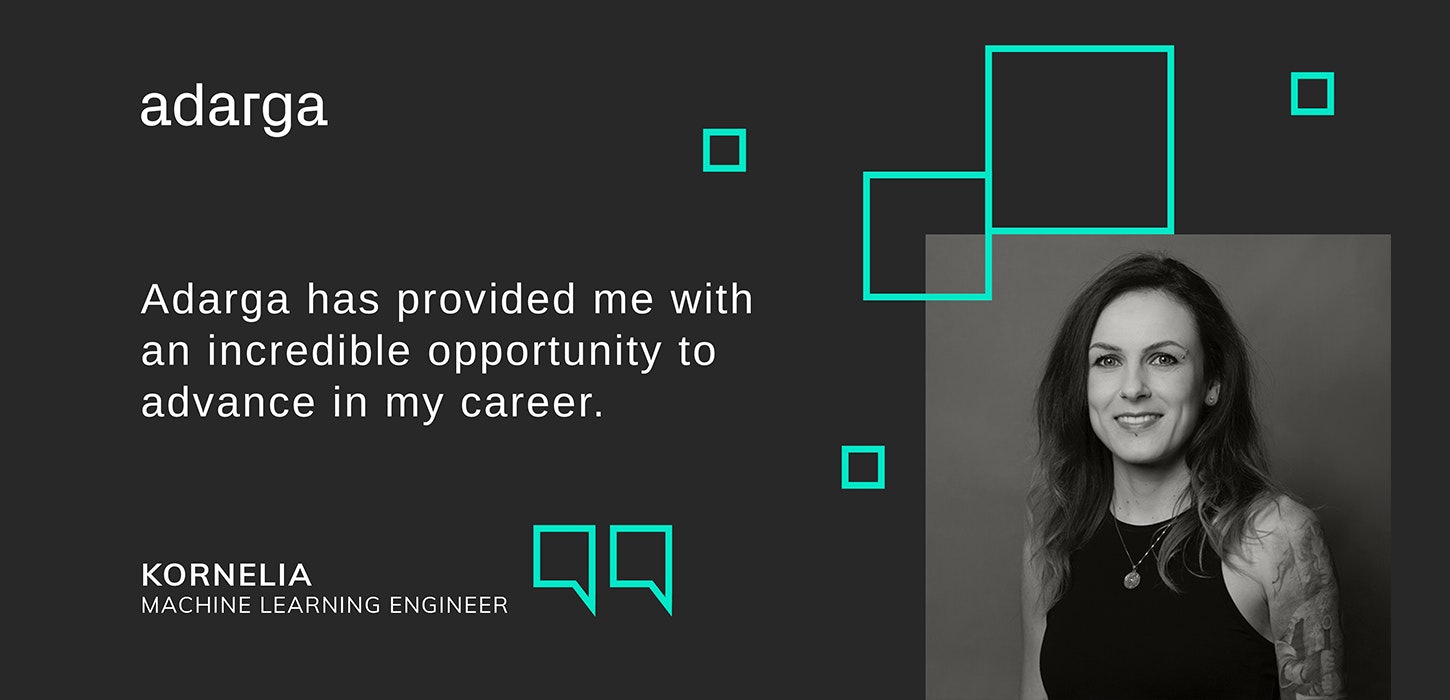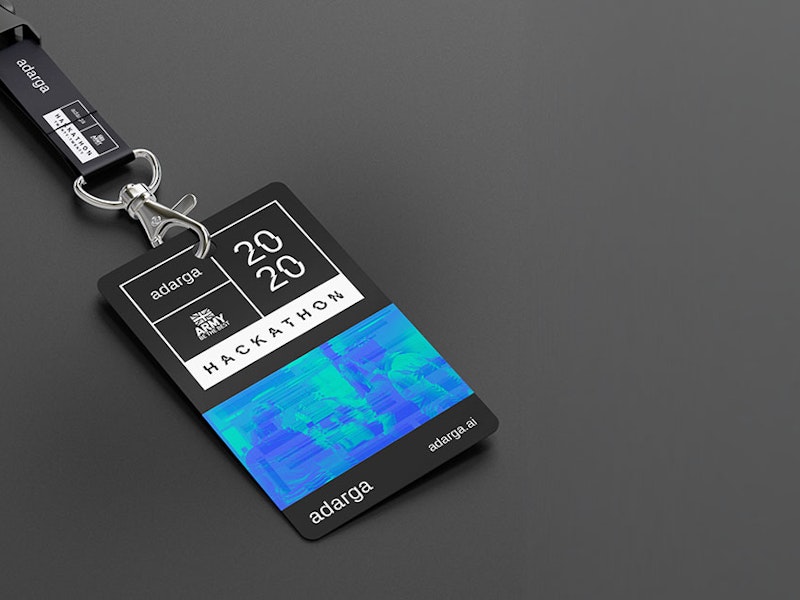
Adarga supports Kornelia on her journey to becoming a Machine Learning Engineer
Although Kornelia did not begin her career as a Machine Learning Engineer, she has become a success in her field with the support of Adarga. Continue reading to find out how Adarga helped Kornelia on her career journey.
What was your experience prior to joining Adarga?
My interest in website development as a teenager launched my career in technology. After completing my A-levels, which included ICT and Graphics Design, I attended the University of Sussex to study BSc Hons Computer Science & AI. After graduating, I followed a career in software engineering, focusing mostly on creating ETL pipelines and REST APIs. I've always wanted to deepen my undergraduate machine learning knowledge, but after years away from that field, it was difficult for me to reorient my career.
How did your apprenticeship programme with Adarga come about?
While being interviewed by Adarga for another software engineering position, I mentioned my interest in learning about the development and application of machine learning in the business world. After a year of working for Adarga, I was delighted to be offered a Level 7 Research Scientist Degree Apprenticeship. This gave me the opportunity to close the gap that had grown over the years. The journey was difficult, especially because my cohort was the first to try this newly approved programme; however, it was one filled with opportunities and a happy ending.
What did your apprenticeship programme entail?
The apprenticeship programme took 2.5 years to complete. During this time, I was required to complete on-the-job tasks that demonstrated my competency in the knowledge, skills, and behaviours (KSBs) outlined in the apprenticeship standard. KSBs were evaluated at the program's conclusion during the End-Point Assessment (EPA) stage. There were two methods of evaluation. The first evaluation consisted of a 4,000-word report, a 30-minute presentation, and questions about a work-related project. The second assessment was an hour-long professional discussion centred on the portfolio of KSBs that I had accumulated throughout the apprenticeship. This included email trails, witness statements, reports, and a variety of other things.
As part of my training, I also completed a two-year part-time MSc in Data Science at the University of Exeter. Each academic year was divided into three terms. Terms 1 and 2 each had two modules that were graded using coursework, tests, or mini projects. The third term was devoted to research projects, which were evaluated through technical reports and presentations. Term 3 provided hands-on opportunities to complete work-based projects that were evaluated during the EPA stage. My first project involved creating an interactive web application to connect researchers at the university's Institute for Data Science and Artificial Intelligence (IDSAI). In my second project, I created a CNN model that recognised sketches of NATO map symbols. This project also provided me with the opportunity to lead a team of interns in the creation of an interactive frontend that allowed users to interact with the model. The application also included educational materials to help non-technical users understand the fundamentals of machine learning systems.
Because the programme was an apprenticeship, I was entitled to at least 20% of my contracted hours for off-the-job training (OTJ). The goal of OTJ training was to help me achieve the necessary KSBs. This could be accomplished by using that time to self-study, complete MSc coursework, or shadow my colleagues as they perform tasks that expose me to related KSBs.
What challenges did you face during your apprenticeship programme?
The main challenge was maintaining a work-life-study balance. A few students dropped out or deferred because the workload was too much for them to handle. The volume of material that we were introduced to during monthly 3-day teaching sessions was the main challenge for many of us. Due to the breadth of the material, the lecturers were only able to scratch the surface of concepts covered, which meant that we needed to spend at least twice as much time as expected self-studying to understand the material. Both the university and Adarga were aware of how difficult this was and were constantly looking for ways to improve and mitigate the impact.
Who should apply for the apprenticeship programme?
This apprenticeship, in my opinion, is an excellent opportunity to re-align your career path toward data science and machine learning focused roles while remaining in full-time employment. Anyone considering taking on this programme will find it easier to manage if they are already familiar with mathematical concepts such as linear algebra, calculus, and statistics, as well as Python programming. My advice would also be to ensure that an apprentice and an employer have a clear plan in place for daily responsibilities and work-related projects. The closer they are to KSBs, the easier it is to collect a high-quality portfolio. Planning ahead of time also helps to avoid problems that may arise when using the company's data. It's possible that you'll need a more stringent NDA in place, which could take some time.
What was your overall experience?
Overall, while the process was difficult, I am pleased that I accomplished what I set out to do. I graduated with honours from both the apprenticeship programme and the MSc. This journey has allowed me to not only advance in the field of data science, but also to learn more about myself and my personal and professional goals. I am now applying my cross-domain knowledge as a Machine Learning Engineer, where I am standardising our operations around model development and deployment with my colleagues (ModelOps).
I'd like to thank Adarga, my colleagues, mentors, tutors, fellow students, and my husband for making this journey possible and for their support. Thank you very much!









